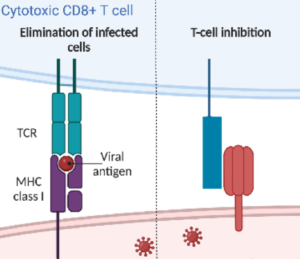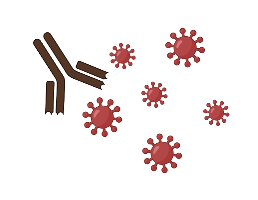Viruses immune evasion and host adaptation Viral infection induces diverse immune responses in the host that work coordinately to eliminate the virus and clear the infection. To establish infection, viruses have evolved numerous immune evasion mechanisms that allow them to replicate and spread in the host despite the antiviral immune responses. Understanding the basis of the dynamic interaction between the immune system and viruses is therefore essential for developing novel therapeutic approaches for viral infection. In our lab, we aim to shed light on the complex interaction between viruses and the immune system. We use advanced single-genome sequencing techniques and other virological and immunological methods to monitor immune responses to viral infection and to identify the mechanisms used by viruses to escape these antiviral responses.

Immune checkpoints in viral infection
Immune checkpoints are suppressive pathways that modulate the activity of immune cells. Immune checkpoint inhibitors have been shown to successfully activate the immune response towards tumors and has revolutionized cancer therapy. However, much less is known about the involvements of immune checkpoint in acute viral infection. By investigating respiratory viral infections, our goal is to provide in-depth analysis of immune checkpoint pathways that alter the immune response towards viruses.
 Antibody-mediated immune responses
Antibody-mediated immune responses
By using viral infection as a model, we are aiming on understating the basis of antibody-mediated immune activation and viral escape from antibody recognition. We are using this information to develop novel antibodies which will provide sustained viral suppression.

